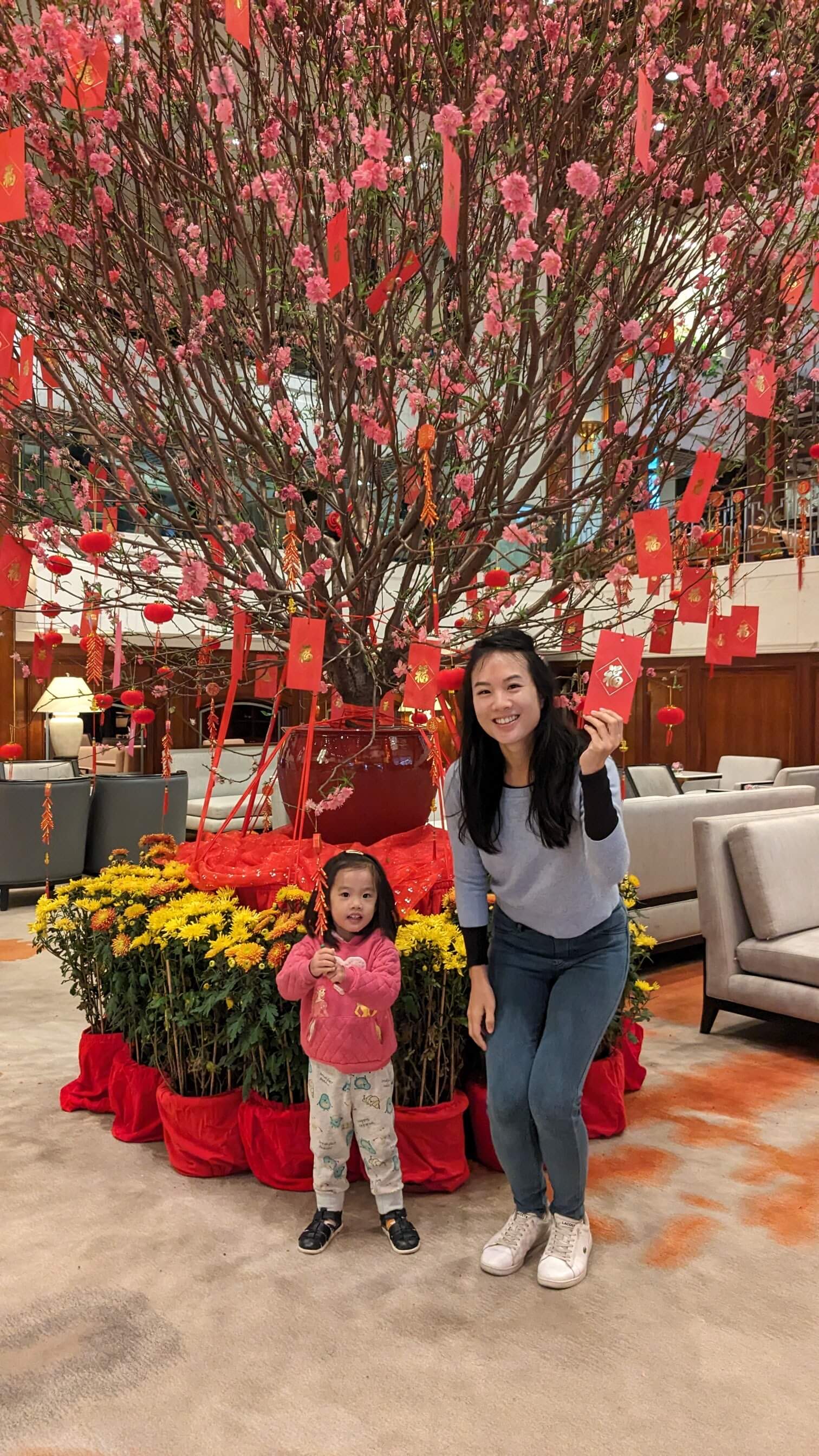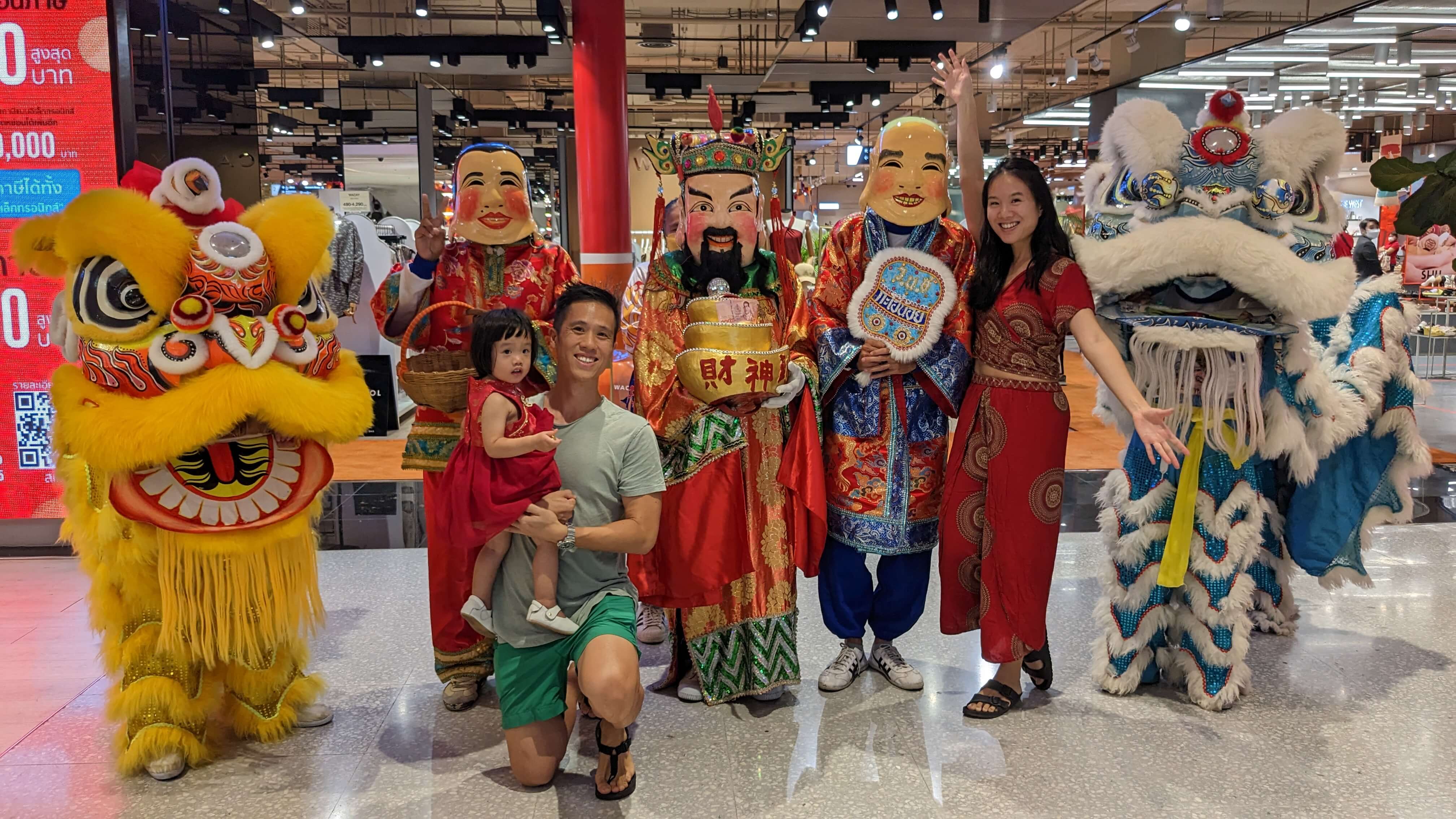Thriving as a TCK

By Sheena Low
I’m at a BAMBI playdate with kids of all sorts of ethnicities, the kind where everyone seems to juggle three languages and a passport collection that would shame a seasoned diplomat. I mention the challenges of raising your kids abroad, the constant goodbyes, the struggle to keep traditions alive. Another parent leans in, a relieved smile breaking across their face. "Oh my gosh, me too! The challenges of raising a TCK, right?”
TCK, that is Third Culture Kid. I’ve heard it thrown around before but what does it mean exactly? More importantly, is being a TCK a good or bad thing? And if Augie is a TCK, is there anything specific I should do? What do I need to be aware of as a parent?
So many questions. So I interviewed Alice de Ungria to get them answered. Besides being a TCK herself, she is a psychotherapist passionate about self-discovery. She empowers individuals to develop healthier coping mechanisms, greater self-awareness, and cultivate more fulfilling lives. Alice's expertise lies in recognizing the intricacies of each client's personal culture map, including the challenges faced by third culture individuals. With her unique perspective, Alice is our girl to shed some light on the complexities of raising a third culture child.
What exactly is a third culture kid?
A third culture kid is someone who has spent a significant part of their developmental years living in a culture different from their parents' and the culture of their passport country.
The key difference between a TCK and a second-generation child (whose parents immigrated) is the number of cultures involved. A second-generation child might grapple with their parents' heritage and the culture they grew up in, but a TCK has a whole new layer of complexity. They're constantly adapting to new environments, weaving together the threads of their parents' culture, the host culture they're living in, and potentially the culture of the next place they'll call home.
There is no hard and fast rule or official definition, but you can think of it like this: a second-generation child might be juggling two suitcases, while a TCK is constantly building a backpack, adding souvenirs and essentials from every new adventure.
Take me for instance. Mum was born in HK and my dad was born in the Solomon Islands; both are of Chinese ancestry, so I am too. I was born and raised in Australia for the majority of my developmental years. That makes me a second generation Australian with Chinese ancestry but unlikely to be a TCK. Now, take Augie: Chinese ethnicity, Australian nationality, but born in Thailand. Alice tells me that's a recipe for a fully-fledged TCK!
The key thing to remember is that every TCK's experience is unique. It's not just about the number of cultures they encounter, but the depth of those experiences.
Navigating the maze: three big challenges faced by third culture kids
Ever had a feeling of being in between places? That's a familiar experience for third culture kids. On top of navigating new cultures and goodbyes, TCKs also grapple with a unique challenge: figuring out who they are. Let's unpack three of the biggest hurdles TCKs face.
Challenge #1: The farewell tour—saying goodbye and dealing with grief
For TCKs, goodbyes are a way of life. Whether it's visiting then leaving extended family living oceans away or leaving behind beloved friends at school when moving countries, constant goodbyes can take a toll. For kids, these goodbyes usually aren't acknowledged or processed properly, leading to unresolved grief.
Imagine this: you're a child constantly uprooted, leaving behind pieces of yourself with every move. It's no wonder that goodbyes can feel overwhelming. Alice has some suggestions for parents to help TCKs navigate this challenge:
- Acknowledge the grief: Don't minimize what your child is feeling. Let them know it's OK to be sad and miss the people they're leaving behind. Resist the urge to try to cheer them up prematurely. You may unintentionally dismiss their feelings.
- Help them stay connected: Brainstorm ways for your child to keep in touch with loved ones, whether it's video calls, letters, or care packages. This can help create a sense of continuity despite the move.
- Encourage open communication: Create a safe space for your child to talk about their worries and anxieties about the move. Listen actively and be empathetic.
- Help them process their feelings: Explore creative outlets like journaling, drawing, or playing music to help your child express themselves.
- Pre-move exploration: Before the big move, ignite your child's curiosity about their new home. Explore the new country virtually together. Look at pictures of landmarks, landscapes, and cultural events. Watch videos showcasing local traditions, food, and music. Talk about things they might find interesting, like trying new foods, learning a few basic phrases in the local language, or attending a cultural festival.
- Connecting before arrival: If possible, try to connect with other families who live in the new country, especially those with children. This can be done through online forums or expat groups. Having a playdate lined up for your child's arrival can ease some first-day jitters and provide a familiar face in a new environment.
- Highlight the positives: Focus on the exciting aspects of the new location. Is there a beach they can't wait to visit? A historical monument they're eager to see? Maybe there's a specific cultural activity they're interested in trying. Talk about these things in the weeks leading up to the move, fostering a sense of anticipation and excitement for the new adventure.
- Create an adjustment plan: Moving can be overwhelming, so having a plan in place can make all the difference. Structure the first few weeks to allow your child time to adjust. Schedule some relaxation and exploration time alongside any necessary registration processes or school visits. This allows them to slowly acclimate and discover the good things about their new home.
- Celebrate small wins: Moving to a new country is a marathon, not a sprint. Celebrate your child's small victories, whether it's mastering a new word in the local language, making a new friend, or trying a new food they enjoy. Recognizing these achievements builds confidence and shows them that they're capable of thriving in their new environment.
- Seek professional help: If your child is struggling significantly with goodbyes, consider consulting a therapist who specializes in working with TCKs.
- These suggestions both acknowledge the negative feelings while fostering positive feelings to create a supportive environment for your TCK as they navigate the challenges of goodbyes.
Challenge #2: The identity odyssey—where do I belong?
The question “where are you from?” can be such a loaded one for TCKs. There is often no easy answer.
In fact, a good test for whether someone identifies as a TCK is that moment of hesitation when asked that very question. The pause to figure out which piece of their complex identity to present first. They might feel pressure to fit in with their parents' culture or the culture of their current home. This internal struggle can lead to a feeling of disconnection and a yearning to understand their roots.
Here are some tips:
- Validating feelings: Don’t dismiss your TCK's confusion about identity. Resist the urge to project your own thoughts, like “of course you're Chinese!” Remember, for them, the answer might not be so obvious. Acknowledge that feeling like you don't belong anywhere is a common experience for TCKs. This can be challenging if you are not a TCK. There are many resources available—consider exploring books or websites about TCK experiences, chatting to someone who is a TCK about their experiences, or even connecting with other TCK families for additional support.
- Language: Learning the language of your heritage is one of the best ways to connect with your culture, but don’t force it—make it fun!
- Find a community: Look for cultural communities or events in your area. Surrounding your child with others who share their heritage can make a big difference.
- Help them explore their story: Encourage your child to create a timeline or map of their life experiences. This can help them visualize the different cultures they've been exposed to and understand how these experiences have shaped who they are.
- Encourage self-expression: Provide creative outlets for your child to explore their identity, such as writing, drawing, or music.
- Role models and mentors: Look for positive role models who are also TCKs. This can help your child feel less alone and show them that it's possible to thrive with a multicultural upbringing.
- Be patient: Building a strong sense of self takes time. Be patient with your child as they navigate the complexities of their identity.

Challenge #3: The double-edged sword of adaptability
Many TCKs are masters of adaptation, like chameleons seamlessly blending into their surroundings, like social butterflies easily making friends in new cultures. This adaptability is a huge strength, allowing TCKs to thrive in constantly changing environments.
However, these constant changes can lead to a feeling of losing touch with your authentic self. Imagine a chameleon constantly changing colors—it might struggle to remember its own true color. This confusion around identity can be a major challenge for TCKs.
Thus, adaptability is a double-edged sword. While it allows TCKs to be sociable and connect with people, it could also lead to a sense of not belonging anywhere. Constantly changing to fit in can make it difficult to know who you truly are.
Here are Alice’s tips on how parents can help:
- Validating feelings: Feeling like you don’t belong anywhere is a completely valid and common experience for TCKs, so it’s important that you don’t dismiss any confusion your child might be feeling about their identity.
- Connecting to heritage: Help your TCK explore their cultural background through language, food, and traditions. This can anchor them to a sense of self and their roots. It's important to find a balance here. While exposure is key, avoid forcing your child to engage in cultural activities. This can backfire and create negative associations. I remember when my parents used to force me to go to Chinese school every Saturday. Instead of fostering a love for the language and culture, it became a chore I dreaded. The pressure took away the joy of learning.
Instead, focus on making cultural exploration fun and engaging. Find ways to connect heritage to their interests. Maybe there are cartoons or movies in their heritage language they'd enjoy. Explore cultural recipes together and turn it into a fun cooking activity. Celebrate holidays with traditional foods and stories, but allow them to participate at their own comfort level. By making it enjoyable, you can spark a genuine interest in their heritage that will last a lifetime. - Stability at home: Create routines and rituals that provide a sense of safety and security. These will be their anchor amid the constant change of moving to new places.
Remember, being a TCK is a unique gift.
Being a TCK is not a burden but a gift. Their adaptability and intercultural skills are valuable assets. By acknowledging the challenges and providing support, parents can help their TCK embrace their unique identity and thrive in the world.
So, the next time you meet another expat parent, and their child confidently declares their nationality, ethnicity, and even birthplace, remember, there might be a whole backpack full of stories waiting to be unraveled. They might be a third culture kid, navigating the beautiful and bewildering world of growing up between cultures.
About the Author
Sheena is a mother to three-year-old August, runs Super Fly Honey, a brand that makes technical activewear for pole dancers around the world, and dreams about writing children’s books. After three years with a lot of yoga, deep friendships, purposeful retreats and IFS therapy, she realizes that becoming a mother is actually a superpower.
